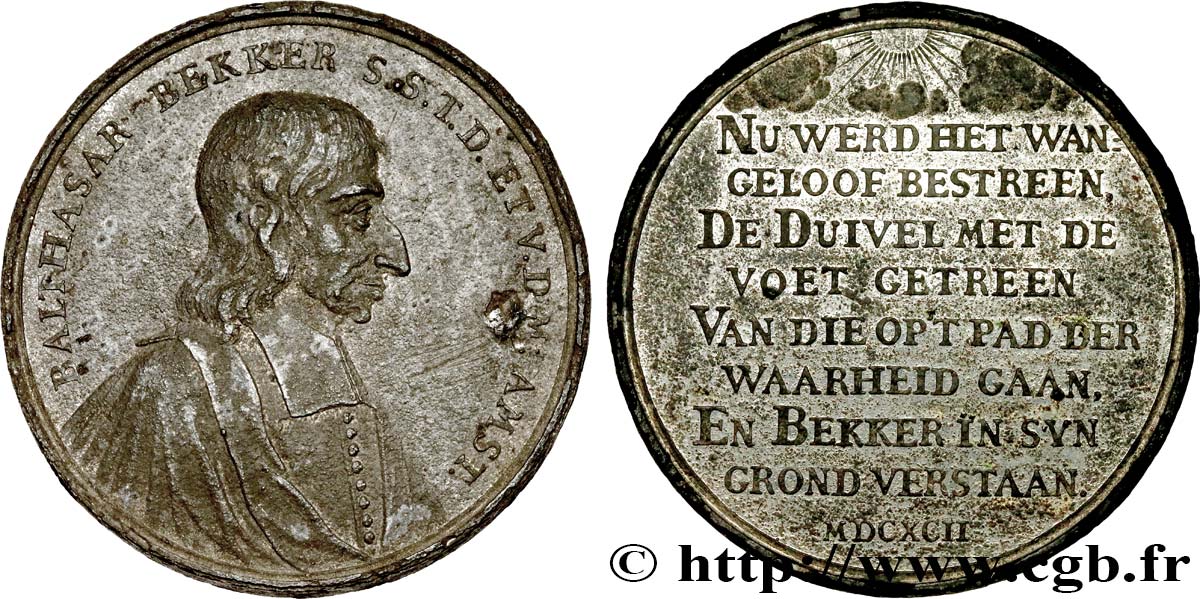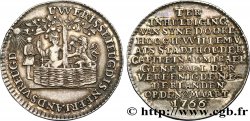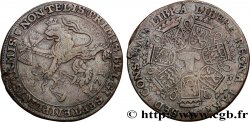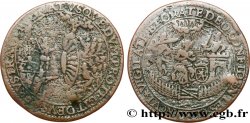fme_459722 - PAYS-BAS - PROVINCES-UNIES Médaille satirique du pasteur Balthazar Bekker
Количество
Добавить в корзину

Тип Médaille satirique du pasteur Balthazar Bekker
Дата: 1692
Монетный двор / Город: Pays-Bas, Amsterdam
Металл: tin
Диаметр: 37 mm
Ориентация осей монеты: 12 h.
Вес: 15,63 g.
Век: Lisse
Пуансон: sans poinçon
Комментарии о состоянии
Bel aspect général avec une patine grise et un défaut au droit vers 3 heures
Происхождение:
Cet exemplaire provient de la descendance directe du graveur Auguste-François Michaut (1786-1879)
Лицевая сторона
Аверс: легенда: BALTHASAR. BEKKER SAE. T. D. ET V. D M AMST..
Аверс: описание: Buste à droite de Balthazar Bekker.
Обратная сторона
Реверс: легенда: NU WERD HET WAN / GELOOF BESTREEN./ DE. DUIVEL MET DE / VO ET GETREEL/ VAN DIE OPT PAD DER / WAARHEID GAAN./ EN BEKKER IN SYN/ GROND VERSTAAN. MDCXCII.
Реверс: Описание: Légende en neuf lignes.
Комментарий
Balthazar Bekker est un théologien hollandais, né à Metslawier dans la Frise, le 20 mars 1634, mort à Amsterdam le 11 juin 1698.
Pasteur en Hollande, partisan de Descartes, il soutient que sa philosophie n'est pas inconciliable avec la théologie et devient suspect de socinianisme. Il est alors inquiété pour ses opinions philosophiques et religieuses..
Pasteur en Hollande, partisan de Descartes, il soutient que sa philosophie n'est pas inconciliable avec la théologie et devient suspect de socinianisme. Il est alors inquiété pour ses opinions philosophiques et religieuses..








 Cообщить об ошибке
Cообщить об ошибке Распечатать страницу
Распечатать страницу Отправить мой выбор
Отправить мой выбор Задать вопрос
Задать вопрос Consign / sell
Consign / sell
 Информация
Информация
